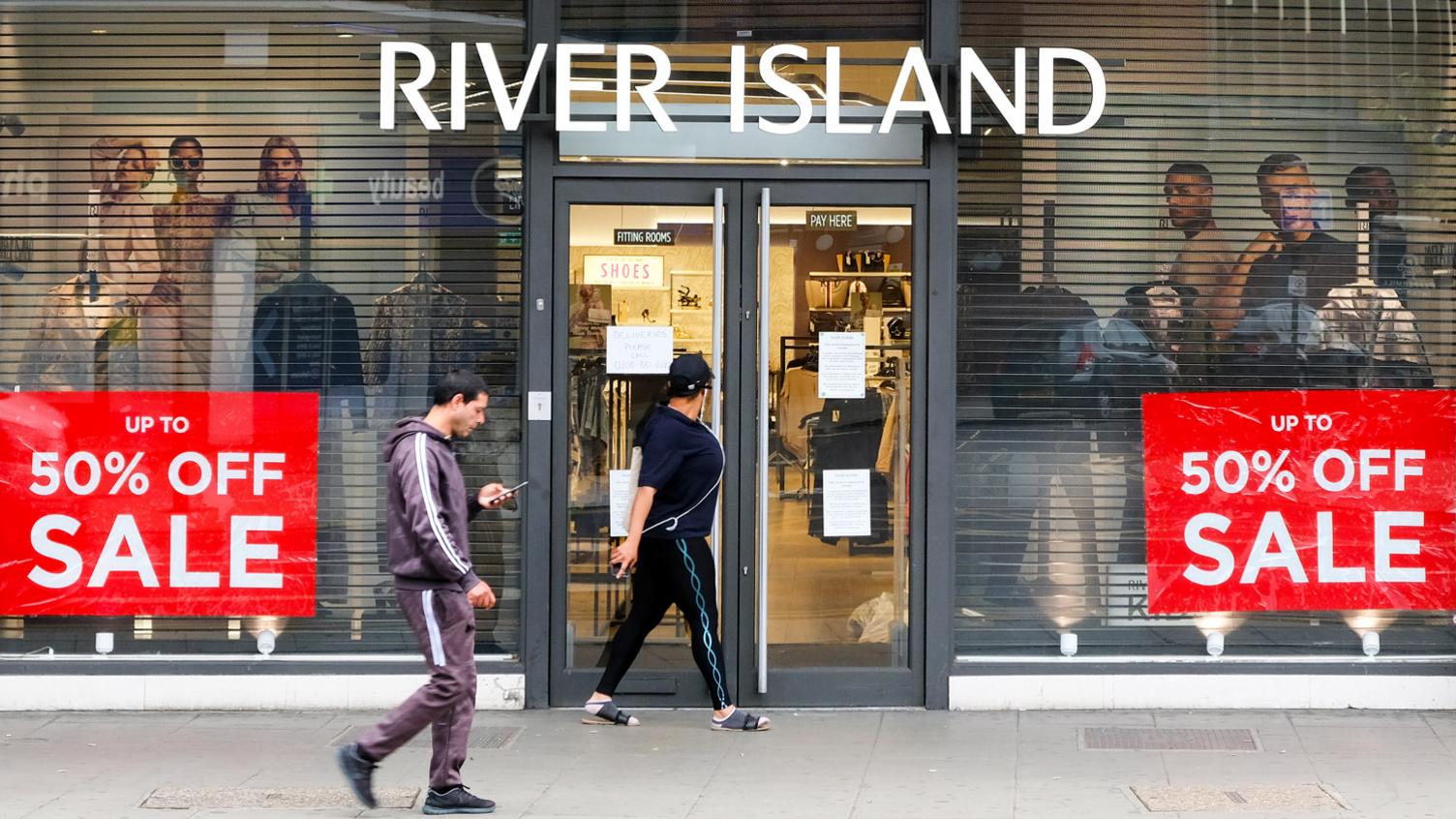Coronavirus: 'Our business can now get cracking' after lockdown
- Published
- comments
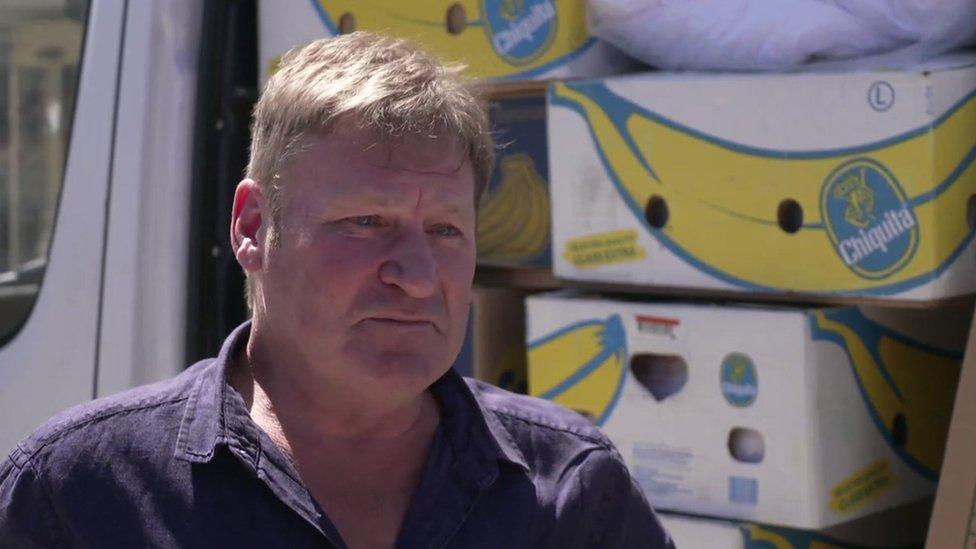
Neil and his wife Susanne run a towel and bedding stall in Barnsley outdoor market
"It's been hard financially, but our business can now get cracking," says Neil Conway, who runs a towel and bedding stall at Barnsley outdoor market with his wife Susanne.
Open air markets and car showrooms will be allowed to re-open in England on Monday, with coronavirus-related measures in place, external.
As with garden centres (which re-opened in May across the UK), the government says the risk of transmission of Covid-19 "is lower in these outdoor and more open spaces".
To try to keep their customers safe, Neil and Susanne have overhauled how they work.
The pair have printed new signs to encourage shoppers to keep a two-metre distance, as well as introducing contactless payments and designated payment and "pick-up" points for orders.
"We're hoping we can provide a good example of how things can work, and hopefully others will follow," says Susanne.
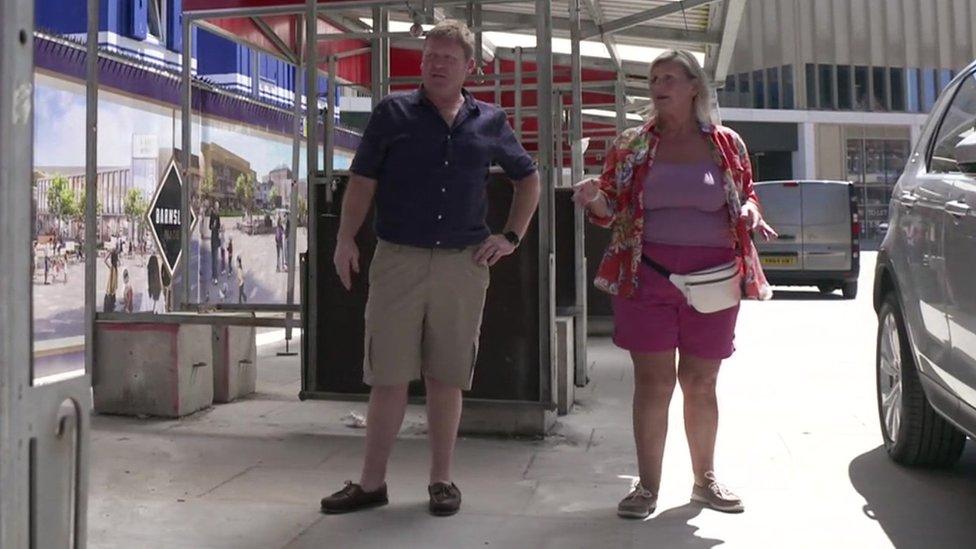
She says that it's been a "funny few months" not trading during lockdown, having started work at the market when she was 12-years-old.
"We have wanted to know when we were coming back, and we were questioning if it was ever going to happen."
"But now we're really looking forward to getting started, and helping get the economy back on its feet, safety-first of course," she adds.
Although their market stall might benefit from lockdown measures gradually being lifted, Neil anticipates it might take some time for trade - and customer confidence - to return.
"I don't think we'll take a great deal of money at first, but we've got to get into the swing of working again," Neil says.
One trade body says that those who've carried on selling essential items like food during lockdown have shown that trading can be done safely. But they told the BBC they believe only a fraction of outdoor markets will resume straight away.
Joe Harrison, chief executive of the National Market Traders Federation said: "It will take a lot of time for markets to get back to their full potential, with the correct equipment in place."
Car showrooms have also been working to put measures in place to ensure the safety of staff and customers ahead of re-opening, said Sue Robinson, director of the National Franchised Dealers Association.
She said they include one-way systems, hand sanitising stations, protective screens and more frequent cleaning for each car.
At Sytner, the UK's largest car dealer, customers will have to test drive cars by themselves. Boss Darren Edwards told the BBC's Today programme customers were unlikely to buy cars they had not driven, and that the firm would do "due diligence" to ensure it was safe.
He said he was hopeful that demand would pick up from current low levels but that the future remained uncertain.
"Clearly once the government's furlough scheme finishes in October we don't know what that is going to do to the economy and general consumer confidence. That's a bit of an unknown."
Covid-19 re-opening plans
Other retailers in England have also been pressing ahead with their coronavirus-secure re-opening plans.
Ikea, for example, could have stayed open during lockdown. But it chose to shut, and will only re-open in England and Northern Ireland from Monday.
One store manager told the BBC that "wardens" will be working in-store, reminding customers of social distancing guidelines.
Other shops classed as non-essential in England, however, won't be able to re-open until 15 June. No firm dates have been set for the reopening of non-essential shops in Scotland, Wales and Northern Ireland, but each country has plans in place.
This includes shops selling things like clothes, toys, books and electronics, external, as well as tailors, auction houses, photography studios, and indoor markets.
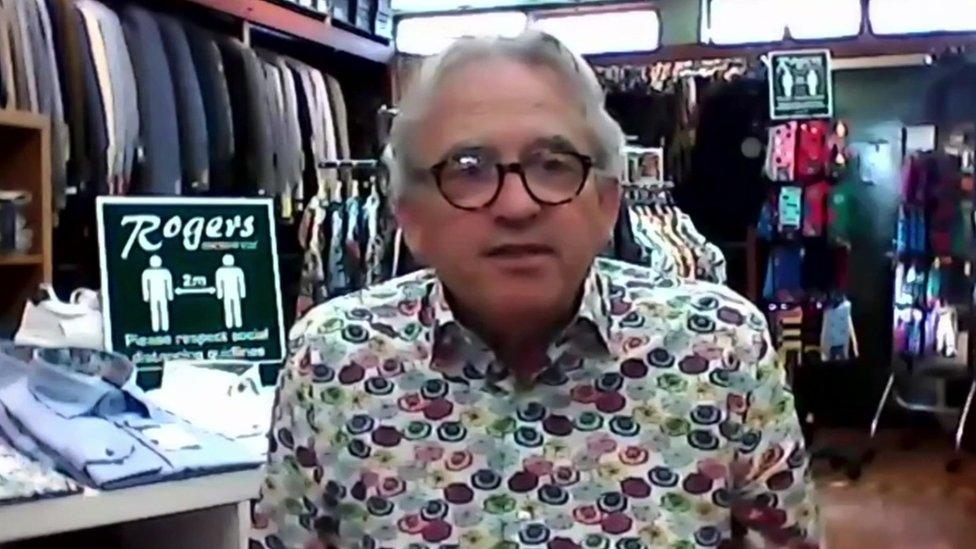
Tony Symons, owner of Roger's Menswear in Kent, has already been gearing-up to start trading again.
He says that he has ordered a Perspex screen for the till area, and will introduce shorter openings hours and a cap on the number of customers allowed in his shop at one time.
But like Neil the market trader, Tony only expects a trickle of trade initially.
"To be optimistic, I would say customers will come flocking through the door. Unfortunately, I don't think that will be the case."
As an independent retailer without an online sales platform, Tony is relying on customer visits, and hopes that footfall will build up over time.
"I'd like to think everyone is like me and wants to get out there and do things, but we shall see."

VACCINE: How close are we to finding one?
SCHOOLS: When will children be returning?
EXERCISE: What are the guidelines on getting out?
THE R NUMBER: What it means and why it matters
GLOBAL SPREAD: Tracking the pandemic

- Published26 May 2020
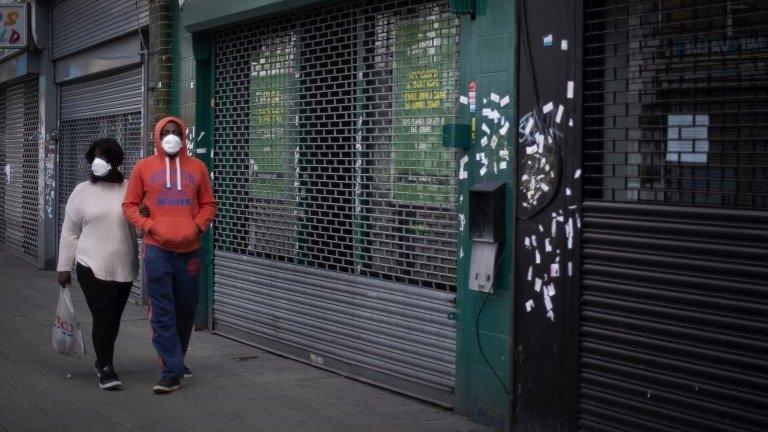
- Published23 June 2020
